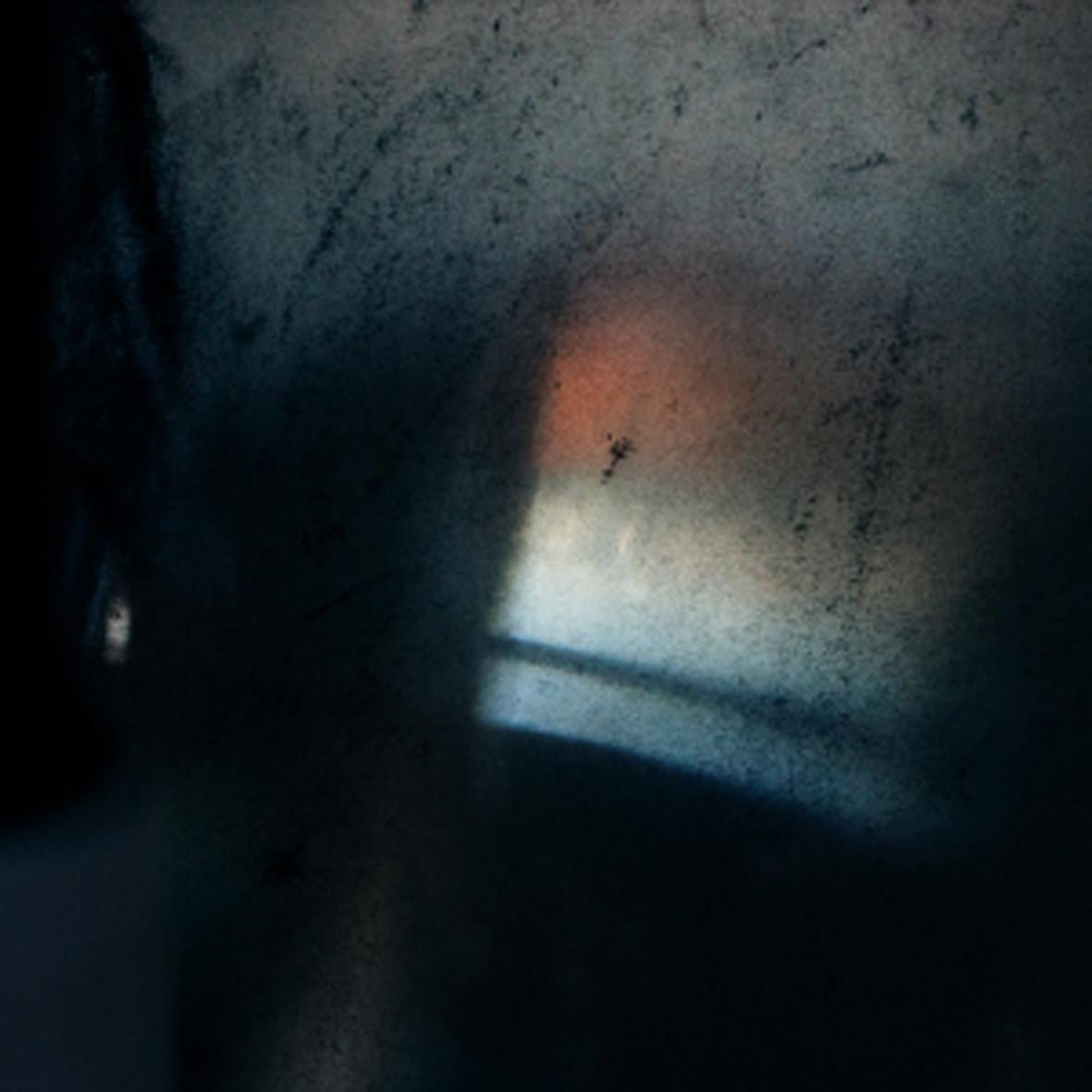Anne Guthrie, "Brass Orchids"
 Anne Guthrie's strange and beautiful Codiaeum Variegatum was one of 2014's most delightful surprises, but I was admittedly perplexed by the early samples that I heard from this follow-up. Brass Orchids is quite a radical departure from its predecessor, as the erstwhile French horn player has now plunged deeply into a hallucinatory miasma of collaged and murky field recordings. As such, Orchids is quite a challenging and abstract album, but its dense fog of unusual textures and found sounds occasionally coheres into something quite compelling and unique. Also, Guthrie definitely gets points for so boldly swimming against the tide of the experimental music zeitgeist, reminding me favorably of the golden age of the early '80s when serious Italian composers were making bizarre noise tapes.
Anne Guthrie's strange and beautiful Codiaeum Variegatum was one of 2014's most delightful surprises, but I was admittedly perplexed by the early samples that I heard from this follow-up. Brass Orchids is quite a radical departure from its predecessor, as the erstwhile French horn player has now plunged deeply into a hallucinatory miasma of collaged and murky field recordings. As such, Orchids is quite a challenging and abstract album, but its dense fog of unusual textures and found sounds occasionally coheres into something quite compelling and unique. Also, Guthrie definitely gets points for so boldly swimming against the tide of the experimental music zeitgeist, reminding me favorably of the golden age of the early '80s when serious Italian composers were making bizarre noise tapes.
Guthrie does not waste any time at all in plunging into the shadowy depths on Orchids, as the opening "Bellona" is quite an uncompromising and surreal swirl of disparate environments woven together to create a disorienting tableau.Initially, it sounds like someone is fiddling with the record button of an uncooperative tape player as they trudge through deep snow, but that scene is soon mingled with a deep, gurgling rumble that suggests that I am perversely also at the bottom of the sea.Some ghostly melodies also surface from time to time, though they prove to be too flickering and elusive to ever cohere into a structure.I would like to be able to say that it evokes the final fragmented dreams of a doomed scuba diver before he unexpectedly washes up in a quietly dripping grotto, but even that is too linear to describe the disorienting trajectory of the piece.That phantasmagoric and drifting web of field recordings is more or less the template for the entire album, but the beauty of Brass Orchids lies in how Guthrie's deep immersion into the impenetrable mists of the subconscious occasionally open up into an unexpected and emotionally affecting window of lucidity.In the regard, the center of the album is where Orchids starts to become something more fascinating and mysterious than mere experimentation.
In "Serious Water," for example, a warbling haze of strangled-sounding feedback drones blossoms out of the murk.It is quite a cool motif to begin with, yet it is further enhanced by some impressive textural sorcery, evoking the sensation of having an otherworldly vision of a submerged world while inside a burning building.And then, an Indian shopkeeper inexplicably interjects to extol the virtues of some random product, though his delightful appearance is similarly fleeting, as he is quickly replaced by a ravaged tape of tinkling jazz piano in a haze of queasily dissonant spectral harmonies."Red Wolf," on the other hand, sounds like an especially unsettling nightmare that takes place in an abandoned subway station, where impersonal recorded voices sporadically appear amidst a warped and rumbling chaos that sounds like reality itself is bending and dissolving around me.The album's centerpiece, however, is "Spider."The opening minutes resemble someone enthusiastically tap-dancing in an empty house as an electromagnetic storm rages around them.I am not sure it is accurate to say that things only get stranger from there, but Guthrie certainly unleashes a visceral, gnarled, and volcanic squall of howling noise, corroded machinery, shuddering electronic squelches, and cryptic snatches of dialogue.The final piece, "Glass," is the album’s only real nod to melodicism, as a melancholy French horn melody languorously snakes its way through a bleary soundscape of dissonantly shimmering glass drones.
I suppose it would be fair to say that Brass Orchids is not as strong or revelatory as Codiaeum Variegatum, but it would be more accurate to view that album as the gateway to Guthrie's unique vision and Orchids as a darker, more psychotropic trip deeper into that rabbit hole.I suspect the perfect Anne Guthrie album would probably lie somewhere between the her two Students of Decay albums, as Orchids could definitely benefit from a stronger melodic or harmonic component.It is a bold step forward in both in both experimentation and intimacy though, weaving complex and sharply realized acoustic environments around a kaleidoscopic trawl through Guthrie’s fractured memories.At its best ("Spider"), Brass Orchids evokes something that is part reality-shredding psychic earthquake and part séance and it is absolutely glorious.While the other four pieces only sporadically reach similar heights, this album is still quite a provocative, iconoclastic, and ambitious bit of sound art.
 



